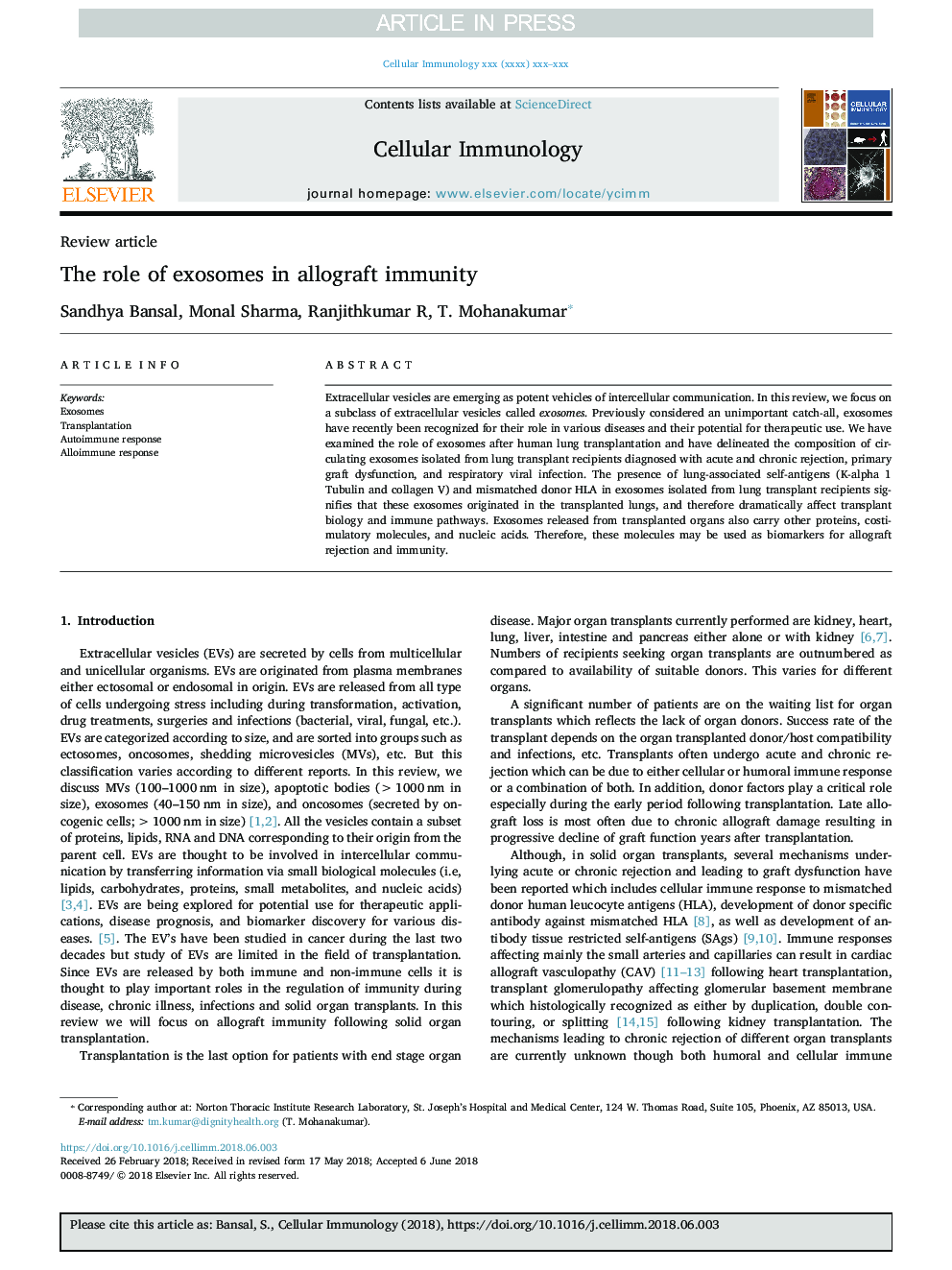| Article ID | Journal | Published Year | Pages | File Type |
|---|---|---|---|---|
| 8463520 | Cellular Immunology | 2018 | 8 Pages |
Abstract
Extracellular vesicles are emerging as potent vehicles of intercellular communication. In this review, we focus on a subclass of extracellular vesicles called exosomes. Previously considered an unimportant catch-all, exosomes have recently been recognized for their role in various diseases and their potential for therapeutic use. We have examined the role of exosomes after human lung transplantation and have delineated the composition of circulating exosomes isolated from lung transplant recipients diagnosed with acute and chronic rejection, primary graft dysfunction, and respiratory viral infection. The presence of lung-associated self-antigens (K-alpha 1 Tubulin and collagen V) and mismatched donor HLA in exosomes isolated from lung transplant recipients signifies that these exosomes originated in the transplanted lungs, and therefore dramatically affect transplant biology and immune pathways. Exosomes released from transplanted organs also carry other proteins, costimulatory molecules, and nucleic acids. Therefore, these molecules may be used as biomarkers for allograft rejection and immunity.
Related Topics
Life Sciences
Biochemistry, Genetics and Molecular Biology
Cell Biology
Authors
Sandhya Bansal, Monal Sharma, Ranjithkumar R, T. Mohanakumar,
